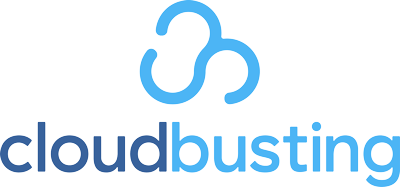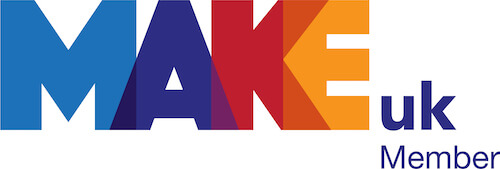When planning to sell your business, it’s not just the tangible assets like equipment or inventory that buyers consider. Intangible assets play a crucial role in determining your business’s value and attractiveness to potential purchasers.
I am currently working with a small number of Business Owner clients on their Exit Strategy. We have between three & five years as a minimum to prepare and implement before they want to do the deal of their lives. All acutely confidential. And so important for all stakeholders involved.
A key part of the process I apply, following a base valuation, is to deep-dive into the assets that don’t sit visibly on the balance sheet other than as results such as retained profits, cash or the bank. It is all about what has been previously invested in, nurtured and developed that now enables the business to make year on year impressive profits.
Daniel Priestley Founder of Dent Global talks about the 24 Assets®️ grouped as:
- Funding Assets
- Culture Assets
- Systems Assets
- Product Assets
- Market Assets
- Brand Assets
- IP Assets
And I took this, along with my own experience from selling our own family-owned engineering business, to pull together a framework that, if applied well in advance, will enable the exit you have worked seriously hard for.
So let us touch upon some of these “intangibles” with a bit more detail:
Proprietary Technology and Intellectual Property
Owning proprietary technology or intellectual property, such as patents, trademarks, and copyrights, adds significant value to your business. These assets offer a competitive edge and are often difficult for competitors to replicate, making your business more attractive to buyers. And don’t assume you have everything in place – where are your domain names registered? What is trademarked? What is a registered trademark? and so on.
Company Culture and Employee Loyalty
How can you value a strong company culture? A strong company culture that fosters employee loyalty and retention is a valuable intangible asset. Buyers are attracted to businesses with a skilled and committed workforce, as it ensures continuity and reduces turnover-related costs. A strong leadership team is also essential. Can the business run without you at the helm on a day to day basis?
Long-Term Customer Relationships and Loyalty
Establishing long-term customer relationships is crucial. High customer retention rates and strong customer loyalty can significantly enhance your business’s value. A loyal customer base provides reliable revenue and indicates the potential for future growth. Recurring profitable revenue contracts are gold when it comes to valuing your business. Have you got any? Also have you got customers which are not good for the business? These will devalue your business, so sort them out whilst you have time.
Reputation and Goodwill in the Industry
Your business’s reputation and goodwill within the industry and community are powerful intangible assets. Positive brand associations and a history of ethical business practices can increase buyer confidence and make your business more appealing. Are you visible? You might be reading this – but are You or Your Business visible on LinkedIn? Are you active members of Trade Associations?
Established Supply Chain and Vendor Relationships
Long-standing relationships with reliable suppliers and vendors can provide a competitive advantage. Buyers are drawn to businesses that have consistent access to quality materials and favorable terms, which can improve profitability. Supply Agreements which lock in pricing are excellent, as long as they benefit the business.
Strong Market Position and Competitive Advantage
Being a market leader or having a strong niche position can make your business more attractive. A well-defined competitive advantage, such as unique products or superior service, adds significant value. As well as the obvious ways of measuring this, do you operate a feedback system? Net Promoter Score, TrustPilot, Google Reviews – independent positive feedback is worth it’s weight in gold too. Remember you business is as good as your customers think, not you!
Data and Analytics for Business Growth
Ownership of valuable data and analytics, whether related to customers, operations, or market trends, is an important intangible asset. This data can drive informed decisions and support strategic growth, making your business more appealing to buyers. I have clients that hold asset registers for Tier One customers in the transportation sector – they have better data than their customer! Do you?
Brand Loyalty and Advocacy
Beyond branding, fostering brand loyalty and advocacy is key. A base of loyal customers who actively promote your brand can lead to organic growth and increase your business’s attractiveness to potential buyers. Do you know who are your “true” best and most loyal clients and customers? The ones who place business with you, recommend you, and give you no hassle other than their expectation of value-for-money pricing, exceptional customer service and a product or service which solves a real problem for them.
Scalable Systems and Processes
Having scalable systems and processes in place is crucial for growth. Buyers look for businesses that can expand without significant additional investment, making scalable infrastructure a significant intangible asset. For me, this is an important area, but not a dealbreaker when it comes to a strategic sale. Often the buyer already has preferred systems and processes which they will most likely look to integrate at some point in the future. However, that does not give you the excuse to not pay this any attention! By automating your business processes and improving outcomes, it will improve your profitability. Which in turn will improve the valuation on your business. It also means you team won’t feel as overworked and stress, so greater retention and happy employees!
Environmental, Social, and Governance (ESG) Practices
A commitment to sustainability, ethical practices, and governance (ESG) is increasingly valued by buyers. Businesses with solid ESG practices are more attractive, especially to buyers who prioritise corporate responsibility. ESG is not just for large corporations. Start small, and this feeds into how your business culture evolves, who wants to work for you, who wants to place business with you and so on.
Proven Business Model and Strategic Plan for Sustainable Success
A proven business model that has demonstrated consistent success and adaptability to market changes is an invaluable intangible asset. Buyers seek businesses with reliable and predictable performance, which can increase your business’s value. Having a Strategic Business Plan you can evidence as following (not sat in the bottom drawer gathering dust), shows you have plans for the business if you don’t sell to them. You are not desperate. This is not a fire sale.
My Conclusion
Being a Business Owner means, at some point, selling your business may become a reality. Focusing on building these intangible assets can significantly increase your business’s value and make it more attractive to potential purchasers. It takes time to hone, refine or overhaul these intangible assets. So my main advice is to start early as these assets not only enhance your business’s appeal but also ensure its resilience and long-term success.
With Cloud-Busting I love working on Exit Planning. The vision is clear and timebound. All we need is the Exit Strategic Roadmap to take you there. If this is on your radar, then get in touch!





